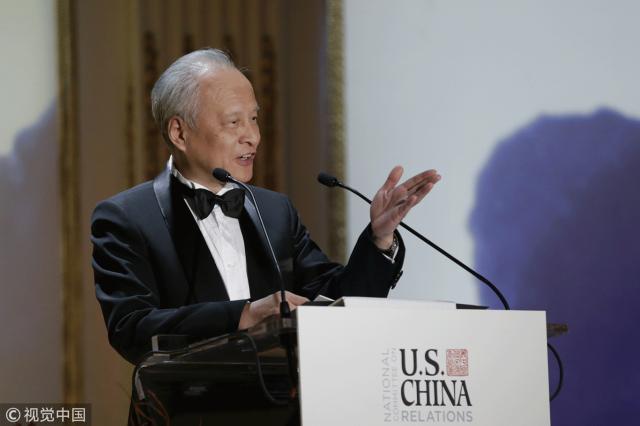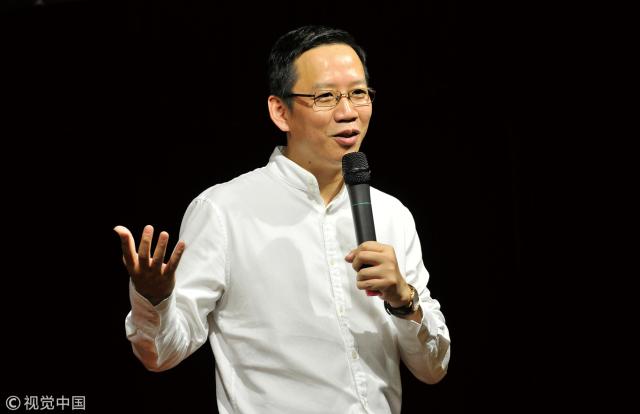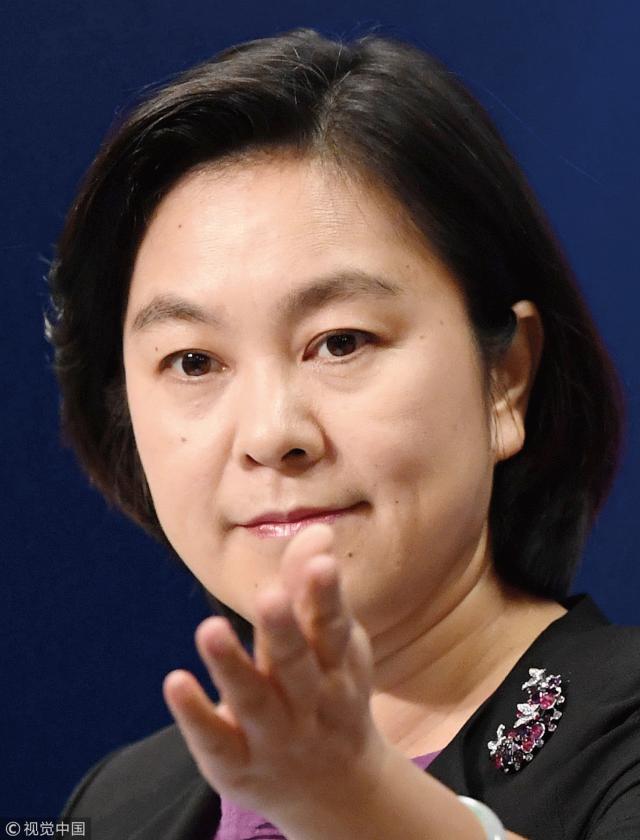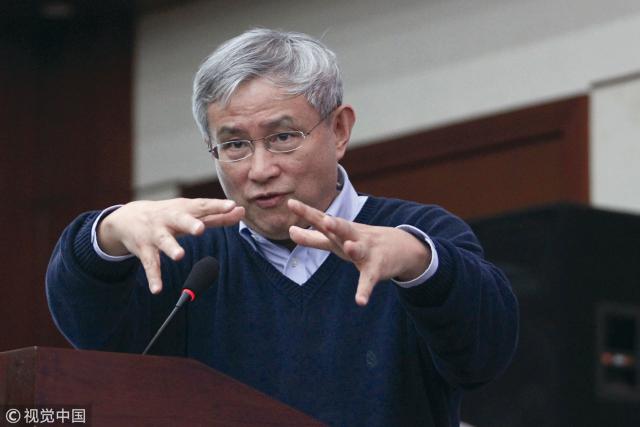“Individuals should have more freedom to give birth, but since Chinese people don’t want large families anymore, the birth rate wouldn’t rise even if we further loosened controls.”
Zhai Zhenwu, director of the China Population Association, warning about China’s low birth rate, during a recent interview with China Daily.
“I think more than once we had some tentative agreement between the two working teams [of China and the US]. Then just overnight the tentative agreement was rejected and the demand from the US changed. So this is very confusing, and this is making things very difficult.”
Cui Tiankai, Chinese ambassador to the US, talking about Sino-US trade negotiations during an interview with US National Public Radio (NPR).
“Private capital can no longer merely mind its own business now, because firms have expanded their business so much, they have become pillar industries related to national welfare and people’s livelihoods – in other words, they have constructed these pillar industries and provided new infrastructure themselves. For example, some internet giants are of no less importance than a national or social enterprise, so it is impractical and ridiculous to define them as having a supporting role and being complementary.”
Economist Wu Xiaobo, talking about the changes to the Chinese economy, in a post on his WeChat public account.
“I feel that some Americans are trying very hard to win an Academy Award for the best screenplay... If you really worry that iPhones are bugged, just shift to use Huawei [cellphones].”
Hua Chunying, spokeswoman for the Chinese Ministry of Foreign Affairs, commenting on a New York Times report that US President Donald Trump’s personal iPhone has been monitored by the Chinese and Russian intelligence agencies.
“Since we can’t find a new way to liberate and further develop productivity, the fruits of our 40 years of reform will be nibbled away at and our social welfare will be bogged down unless we can deepen our institutional reform... Luxury and corruption have arrived among us before we have truly gotten rich and all these factors will burden our national economy.”
Zhou Qiren, a professor at the National School of Development, Peking University, discussing China’s future reform path, at Tenyun, a private think tank established by internet giant Tencent.
“If parents don’t respect and set limits between them and their children, their children will have no awareness of limitations. This means they won’t be able to distinguish between love and hurt, or protect themselves when someone tries to harm them.”
Psychologist Xiao An posting on his microblog his opposition to police declining to investigate a father after passengers on a train expressed concern that he was lifting up his five-year-old daughter’s clothes and fondling and kissing her inappropriately, even though the child was resisting.
“When I got to third grade, I gradually found that society reduces people by, in simple terms, having entrance exams for middle schools and colleges. Before we’ve even been able to show our talents, we’ve been reduced to being described as useless.”
You Yixuan, a fifth-grade elementary school pupil from Nanjing, Jiangsu Province, who shot to fame on the internet after her composition for an essay competition was posted online and went viral.
“There is so much argument in the public opinion sphere that some people only believe what online influencers say. It should be noted, however, that much of their influence is made up on purpose and hyped up.”
Zhu Wei, deputy director of the Communication Center of the China University of Public Science and Law, warning that public opinion is often manipulated, in an article for business news magazine Caixin.
“It’s fine that we expect the State to rescue the stock market. But the market’s self-distortion should be repaired in a market-oriented way. International and national experience has proved that [State] rescue is not necessarily the best way to stabilize and develop the market.”
Zheng Liansheng, an associate researcher at the Institute of Finance and Banking, Chinese Academy of Sciences, saying that government supervision and management should find a balance between market rules and fluctuations, in an article in Caixin magazine.
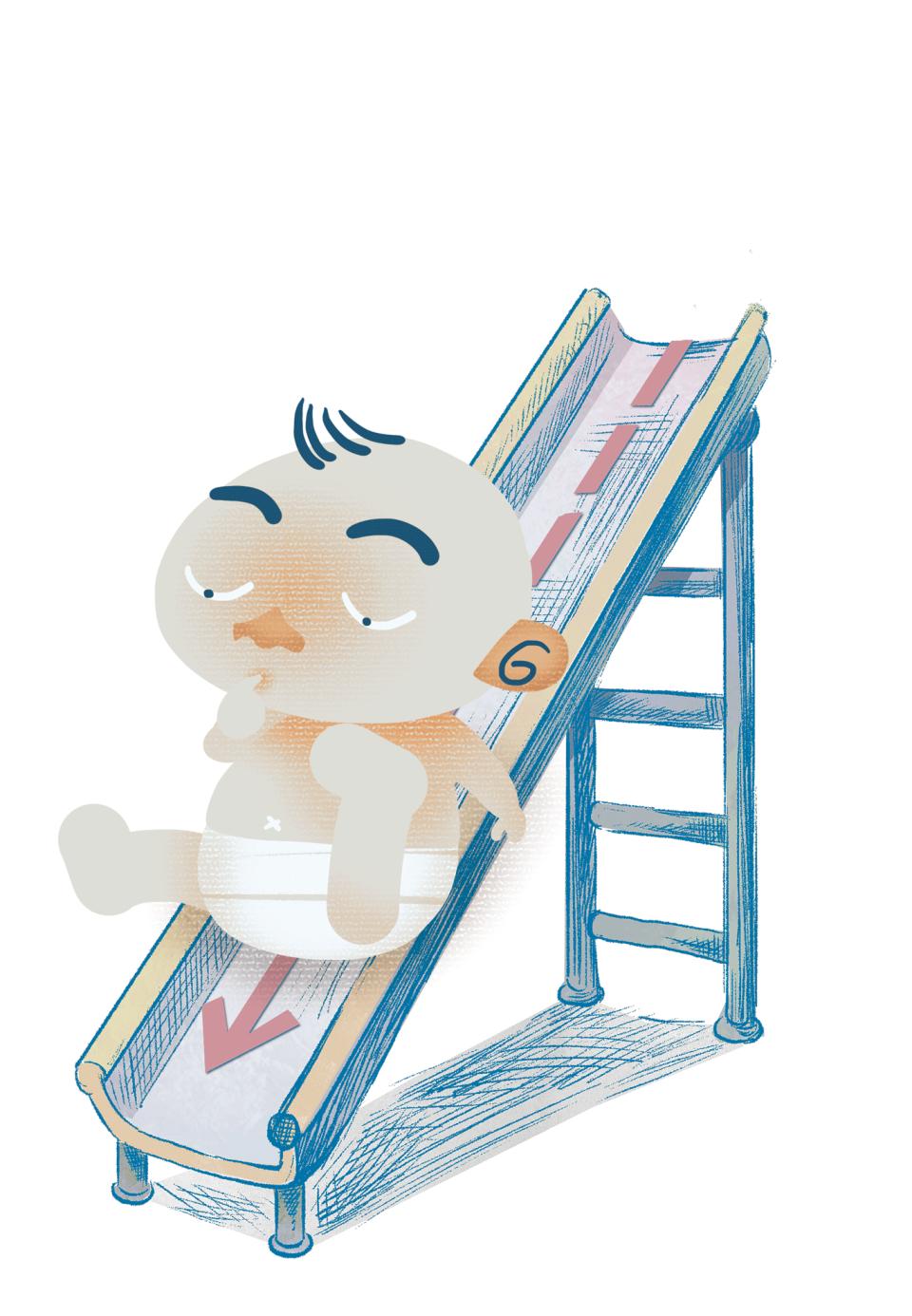
 Old Version
Old Version
